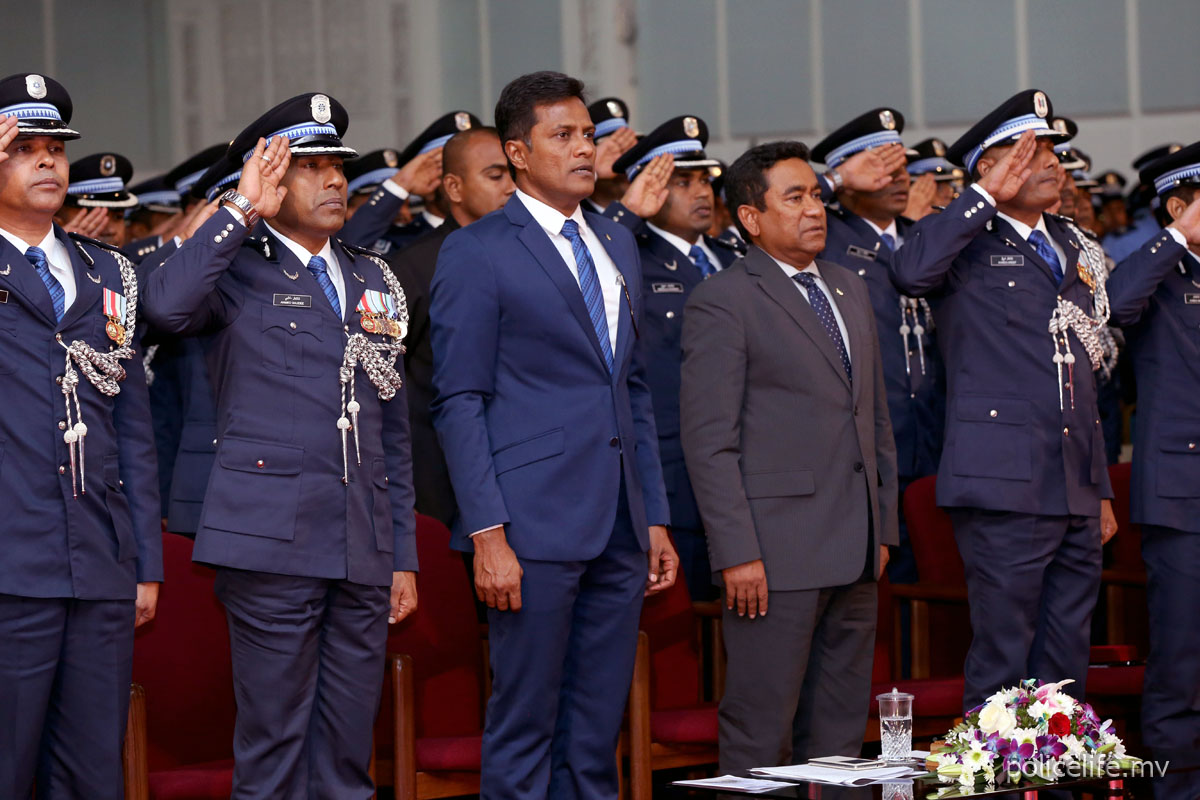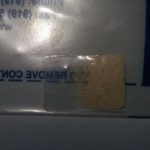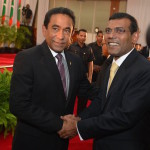Home Minister Umar Naseer says the government is planning to grant police the authority to prosecute petty crimes in a bid to speed up long-pending trials on simple offences. The opposition, however, has labelled the move an attempt to jail dissidents.
Speaking at a ceremony to mark the police force’s 83rd anniversary on Sunday, Naseer said: “Forty years ago, if someone commits a petty crime, the state issues a ruling within 48 hours of the incident, through a court. However, we are now seeing delays in some trials.
“I intend to undertake reforms in the next year to speed up access to justice and the criminal justice system.”
The criminal court has been criticised for delays in prosecution, with Chief Justice Abdulla Saeed ordering all courts to clear backlogs last year. The criminal court’s annual report for 2014 shows that over 1000 cases remained pending at the start of 2015. Some 530 cases were between a year and three years old, while 246 cases dated back to five years.
Some 890 cases were pending by the end of 2015. A majority of criminal cases relate to petty crimes.
Naseer said petty crimes cost the state money and resources, and said granting prosecutorial powers would speed up trials.
The main opposition Maldivian Democratic Party said the move would undermine the system of checks and balance as Article 223 of the constitution grants prosecutorial powers to an independent prosecutor general.
The plan would also require a constitutional amendment, said MP Imthiaz Fahmy.
He added: “Even when the Constitution clearly states that the prosecutor general must be impartial and independent, the individual filling the post is finding it extremely difficult to operate independently of political pressures and influences. How will a police force directed by the home minister, a sitting cabinet member, guarantee unbiased prosecutions?” he asked.
The pro-government majority at the parliament last year removed then-chief prosecutor Muhthaz Muhsin and appointed President Abdulla Yameen’s Legal Affairs Secretary to the post.
Mushin is now standing trial on a charge of terrorism for allegedly forging an arrest warrant against Yameen.
Fahmy also raised questions over the police force’s independence, noting Yameen had removed the police chief and his deputies over allegations of bribery and politicisation.
“The president himself had previously alleged that the police force had been compromised because of corruption and bribery. Nothing has been done since to reform the police. Granting the police prosecutorial powers will only pave way for the government to use the criminal justice system to get rid of political opponents.”
The MDP says over some 1700 of its supporters are facing prosecution for exercising their right to protest. Most are charged with disobedience to police orders, a charge that previously carried a jail sentence of up to six months or a fine.
The criminal court last week handed 14 activists a jail term of three months, suspended for three years, over a protest at the airport last year.
Some 18 journalists were arrested at a press freedom rally and are being accused of obstructing law enforcement officers.


















